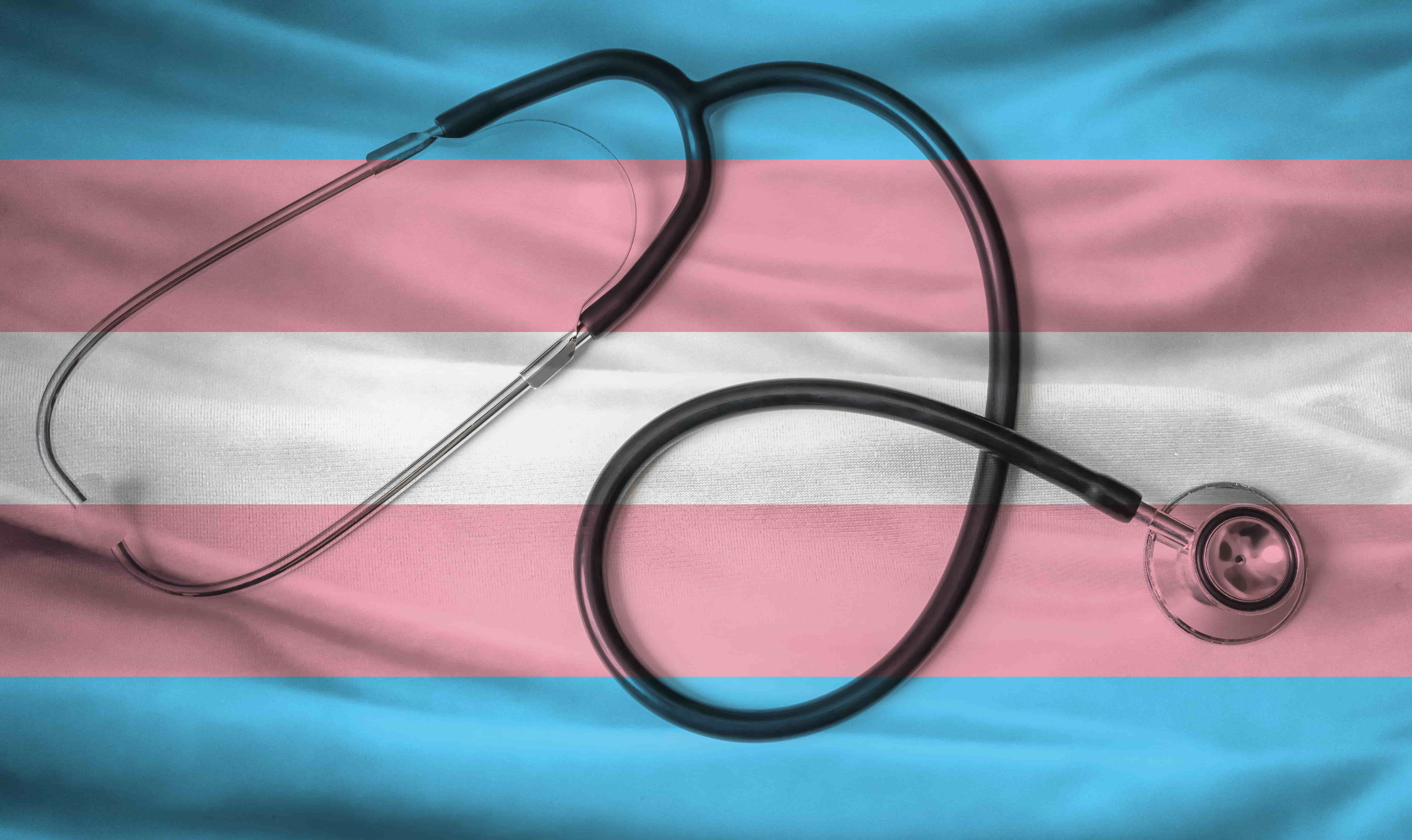Olympian Wins Appeal of Testosterone Limits for Female Athletes
A court sided with Olympic gold medalist Caster Semenya, who is challenging requirements that she take hormones to reduce her testosterone levels.

Two-time Olympic gold medalist Caster Semenya has won an appeal to the European Court of Human Rights challenging rules seeking to regulate testosterone levels in elite female athletes.
In a 4-3 decision, the court found that the rules put in place by World Athletics, the governing body that regulates international track and field competitions, discriminated against the 32-year-old South African middle-distance runner when it imposed strict testosterone requirements on female athletes to weed out transgender or intersex athletes and bar them from women’s competitions.
Semenya is cisgender, and has always identified as a woman, but naturally produces higher levels of testosterone than the average female athlete, due to a condition known as differences in sex development, or DSD.
World Athletics issued a rule back in 2017 requiring athletes competing in the 400-meter, 800-meter, and 1500-meter races to undergo hormone therapy with the intent of reducing and keeping their testosterone levels consistently below 2.5 nanomoles per liter for six months prior to competing.
Earlier this year, World Athletics, formerly known as the International Association of Athletics Federations, imposed an even stricter rule, requiring athletes with DSD competing in any female-designated competition to undergo hormone therapy to reduce their testosterone levels below 2.5 nanomoles per liter, and keep that level consistent for 24 months prior to competing.
The organization has also explicitly banned transgender athletes who were assigned male at birth from competing as women.
Semenya, the Olympic gold medalist in the 800 meters in 2012 and 2016, underwent hormone therapy to reduce her natural testosterone levels, but refuses to take them again, saying the medication caused a myriad of unwanted side effects, resulting in Semenya gaining weight, regularly spiking high fevers, feeling nauseous, and coping with near-constant abdominal pain, the Associated Press reported at the time Semenya challenged the rule.
Because she refused to continue taking hormones, Semenya was told she would not be allowed to defend her Olympic title.
She challenged the rules, which were temporarily suspended until the case could be resolved. But in 2019, the Court of Arbitration for Sport upheld the actions taken by the then-IAAF, finding that the testosterone limits were necessary to ensure fair competition for female athletes.
Semenya appealed the decision to the Federal Supreme Court of Switzerland.
The Swiss Federal Supreme Court initially instructed the IAAF to avoid enforcing the rule, but later reversed itself, allowing the rules to go into place.
As a result, Semenya, 2016 silver medalist Francine Niyonsaba of Burundi, and bronze medalist Margaret Wambui of Kenya all missed the 2019 World Athletics Championships in Doha while waiting for a ruling.
The court eventually denied Semenya’s appeal in September 2020, and all three athletes were prevented from competing in the 800 meters at the 2021 Tokyo Olympics. Niyonsaba attempted to compete in the 5,000-meter and 10,000-meter races, but failed to medal in either event.
Three other athletes with differences in sex development also ran afoul of the testosterone restrictions for middle-distance runners. As a result, the third-ranked women’s 400-meter runner, Aminatou Seyni, of Niger, was forced to switch to a weaker event, the 200 meters, as was Namibian 400-meter runner Beatrice Masilingi, with both failing to qualify for the finals. Namibian 400-meter runner Christine Mboma also switched to the 200 meters, but was able to come away with the silver medal.
All of the affected runners are Black cisgender women from Africa who have always identified as women.
After the Swiss Federal Supreme Court ruled against her, Semenya filed a second appeal with the European Court for Human Rights, which ruled in her favor on Tuesday, July 11.
In its ruling, the court found that Semenya had valid claims of discrimination related to being forced to medically suppress her hormone levels. It also criticized both the Court of Arbitration for Sport and the Swiss Federal Supreme Court for failing to address “serious questions” concerning the testosterone regulations.
Among the questions that the two previous courts failed to consider were the long-term side effects of hormone suppression medications, the difficulties athletes face in keeping their natural testosterone below a prescribed level, and questions about whether there is sufficient scientific evidence proving that testosterone in cisgender female athletes with DSD gives them an unfair advantage over other athletes.
The court found that due to “the high personal stakes involved for [Semenya] — namely, participating in athletics competitions at international level, and therefore practicing her profession,” her appeal “should have led to a thorough institutional and procedural review” of World Athletics’ rules.
Semenya has continued to insist that the restrictions for athletes with DSD discriminate based on sex and penalize athletes that do not conform to traditional Western standards of femininity.
According to the Associated Press, the Swiss government has been ordered to pay Semenya 60,000 euros, or $66,000 in U.S. dollars, for legal fees and other expenses related to her appeal.
Semenya’s case now goes back to the Swiss Federal Supreme Court for further consideration.
In a statement from her lawyer, Semenya said she was “elated” by the European Court of Human Rights ruling.
“Justice has spoken but this is only the beginning,” she said in a statement released through her lawyers, adding that the decision “will still be significant for all sportspersons in throwing doubt on the future of all similar rules.”
“My hope is that Word Athletics, and indeed all sporting bodies reflect on the statements made by the European Court of Human Rights and ensure that they respect the dignity and human rights of the athletes they deal with,” Semenya added.
In a statement, World Athletics — which has previously referred to Semenya as “biologically male,” an assertion she rejects — said that the testosterone regulations for individuals with DSD are necessary to ensure fair competition, and pushed back against the European court’s claims that the two previous courts failed to conduct a thorough review of the evidence.
“As the global governing body of athletics, we must and do consider the human rights of all our athletes,” the organization said. “Sport regulations by their very nature restrict people’s rights. When those rights are in conflict, it is our duty to decide if that restriction justifies the aim, which in this case is to protect female sport.”
Because Semenya’s most recent appeal was against Switzerland rather than World Athletics, the organization also stressed that its regulations would remain in place. It also said it would “liaise with the Swiss Government on the next steps and, given the strong dissenting views in the decision, we will be encouraging them to seek referral of the case to the ECHR Grand Chamber for a final and definitive decision.”
Yet another wrinkle in the controversy is that the authors of the study on which World Athletics heavily relied when crafting its current testosterone regulations have since issued a correction, walking back an assertion that females with naturally higher testosterone levels have a “significant competitive advantage” over their female peers.
“To be explicit, there is no confirmatory evidence for causality in the observed relationships reported. We acknowledge that our 2017 study was exploratory,” the authors of the study, published in the British Journals of Sports Medicine, said in a statement. “With this in mind, we recognize that statements in the paper could have been misleading by implying a causal inference.”
Support Metro Weekly’s Journalism
These are challenging times for news organizations. And yet it’s crucial we stay active and provide vital resources and information to both our local readers and the world. So won’t you please take a moment and consider supporting Metro Weekly with a membership? For as little as $5 a month, you can help ensure Metro Weekly magazine and MetroWeekly.com remain free, viable resources as we provide the best, most diverse, culturally-resonant LGBTQ coverage in both the D.C. region and around the world. Memberships come with exclusive perks and discounts, your own personal digital delivery of each week’s magazine (and an archive), access to our Member's Lounge when it launches this fall, and exclusive members-only items like Metro Weekly Membership Mugs and Tote Bags! Check out all our membership levels here and please join us today!































You must be logged in to post a comment.